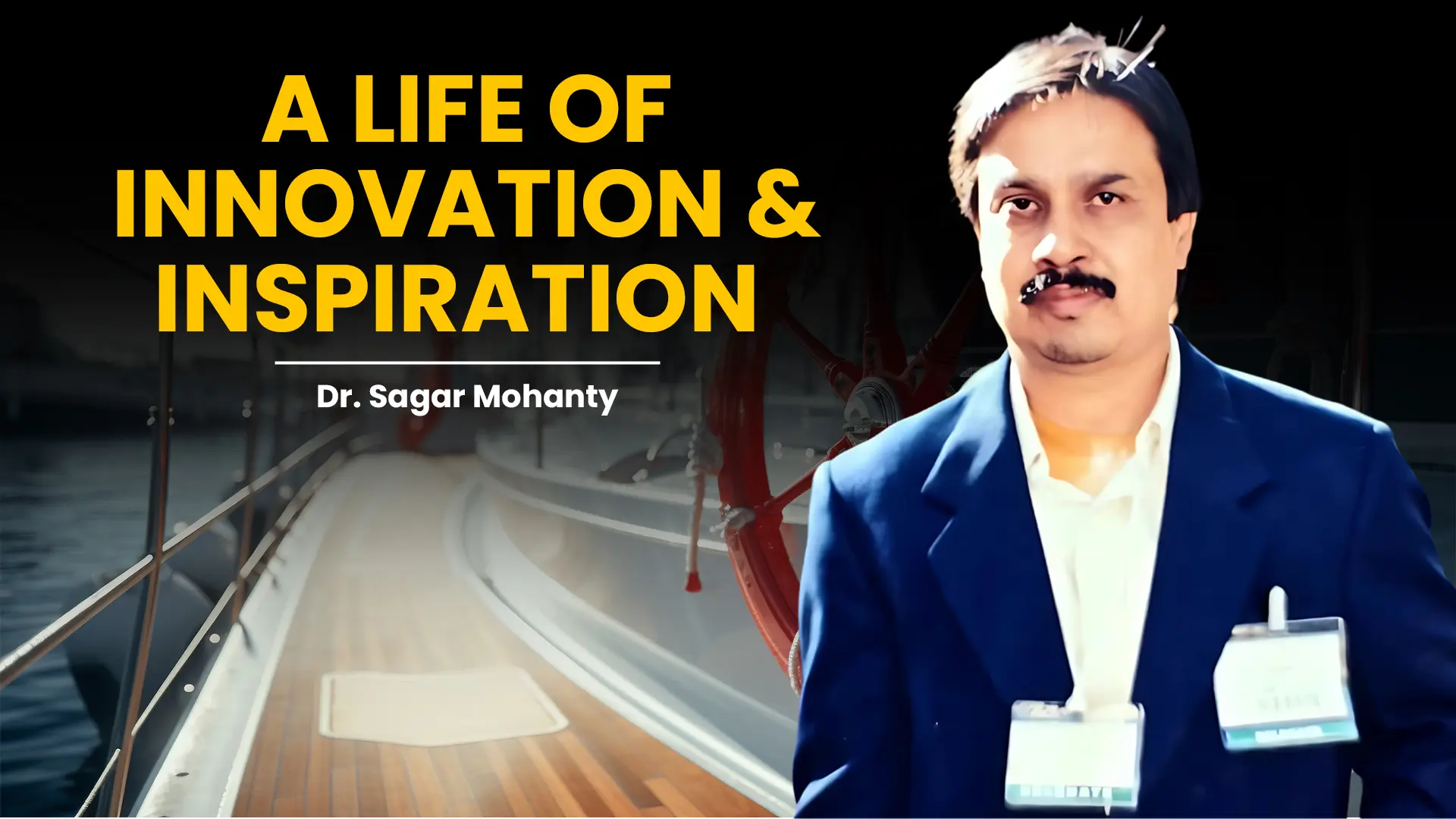
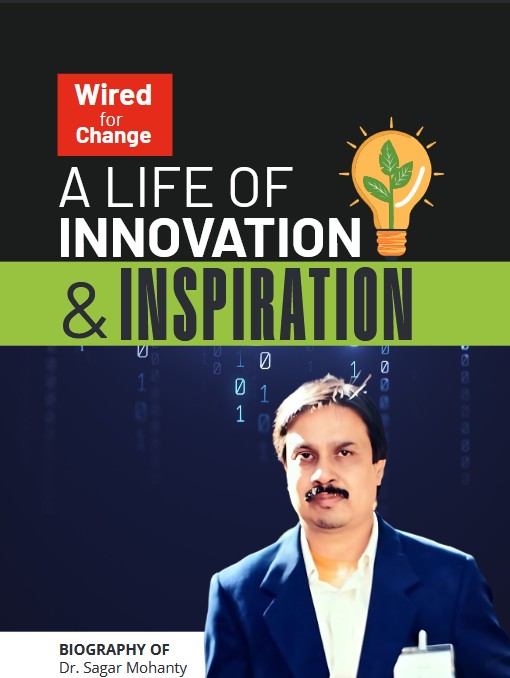
"A leader is one who knows the way, goes the way, and shows the way."
DEDICATION
This biography is dedicated with love, respect, and deep gratitude to my family, whose unwavering support and encouragement have been the cornerstone of my journey.
To my beloved parents, Late Nirmal Chandra Mohanty and Late Santi Mohanty, who instilled in me the values of integrity, hard work, and perseverance. Their guidance, sacrifices, and unconditional love shaped the person I am today. Though they are no longer with me, their teachings continue to inspire and guide me every day.
To my beloved wife, whose wisdom, patience, and steadfast support have been my greatest strengths. Her presence has been a source of comfort and encouragement, allowing me to pursue my dreams with confidence and determination.
To my extended family, friends, colleagues, and students, who have been a part of this incredible journey. Your trust, encouragement, and shared experiences have enriched my life beyond measure.
This book is not just a reflection of my achievements but a testament to the love, support, and wisdom of those who have walked alongside me.
"The roots of education are bitter, but the fruit is sweet." - Aristotle
Phase 1 : Roots in Rourkela
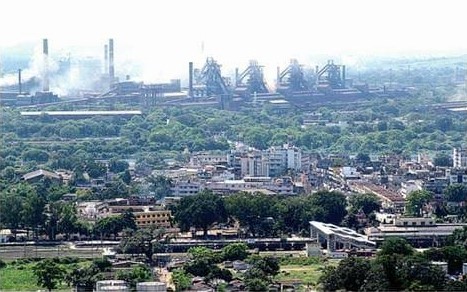
The story of Dr. Sagar Mohanty begins in the heart of Odisha’s industrial landscape, the city of Rourkela. It was on the chilly morning of January 14, 1960, that he took his first breath in a home where education was revered as the path to progress and integrity was the foundation of life. His birth was not just the arrival of another child into the world but the emergence of a mind that would one day shape lives, inspire communities, and uphold the values instilled in him from childhood.
Dr. Sagar’s father, Late Nirmal Chandra Mohanty, was a man of discipline, hard work, and deep intellectual curiosity. As an employee at Hindustan Steel Corporation, he was part of the wave of industrialization that transformed Rourkela into a thriving centre of steel production. Later, his journey led him to serve as the Registrar of the Regional Engineering College (REC), Rourkela, where he played a crucial role in shaping the administrative and academic culture of one of India’s premier technical institutions. His legacy was one of structure, perseverance, and an unyielding commitment to education.
From an early age, Dr. Sagar exhibited a keen curiosity. Whether it was the mechanics of a steel factory, the structured discipline of an academic institution, or the social dynamics of Rourkela’s growing population, he observed everything with a sharp mind. Rourkela, with its blend of industrial growth and academic excellence, became his playground. His childhood was marked by evenings spent cycling through the township’s wide roads, marvelling at the grandeur of the Rourkela Steel Plant, and visiting his father’s office at REC, where he was fascinated by the discussions on engineering, mathematics, and governance.
Life in an industrial town like Rourkela was not always easy. The growing demands of modernization, the struggles of workers, and the challenges faced by families depending on the steel industry gave Dr. Sagar an early understanding of the value of perseverance. His father, who had climbed the ranks through sheer dedication, often shared stories of his own struggles—how he started as a small employee and gradually worked his way up to the prestigious position of registrar. These stories left a profound impact on Dr. Sagar, teaching him that success was not handed down but earned through hard work, patience, and determination.
Rourkela, with its blend of steel mills, academic institutions, and cultural heritage, was more than just a hometown for Dr. Sagar—it was the foundation of his aspirations. It taught him the importance of knowledge, the power of discipline, and the strength of character. It was in this town that he first realized that education was not just about securing a job but about transforming society.
"Education is not the filling of a pail, but the lighting of a fire." – William Butler Yeats
Phase 2 : Formative Years of Education
The journey of every great individual is shaped not just by circumstances but by the people who guide, inspire, and mould them. For Dr. Sagar Mohanty, his formative years were a defining period of exploration, discipline, and intellectual awakening. It was during these years that the seeds of his future ambitions were sown—seeds nurtured by inspiring mentors, rigorous education, and invaluable life lessons.
Schooling at REC Campus School, Rourkela – The Foundation of Discipline and Leadership
The transition from home to the structured, regimented life of REC Campus School was a challenging but transformative experience for young Sagar. Here, days began before sunrise, with rigorous physical training sessions, followed by back-to- back classes, extracurricular activities, and self-study hours. This environment, while demanding, played a pivotal role in shaping his character, time management skills, and sense of responsibility.
At REC Campus School, academics were balanced with an equal emphasis on physical fitness, sports, and discipline. Dr. Sagar was not just a bright student but an active participant in co-curricular activities, proving his mettle in multiple domains.
- Sports: He thrived in athletics and team sports, believing that physical fitness was as important as intellectual growth. Whether it was the football field, the basketball court, or cross-country running, he displayed remarkable perseverance and sportsmanship.
- Debates and Elocution: His eloquence and confidence in speech made him a strong contender in debates, elocution competitions, and leadership forums within the school. His teachers often remarked on his ability to express thoughts with clarity, conviction, and a persuasive edge.
- Academics: While excelling in multiple subjects, Dr. Sagar developed a particular interest in science and mathematics, subjects that challenged his intellect and encouraged him to think critically. He was a National Merit Scholarship and Junior Merit Scholarship holder.
As Dr. Sagar completed this crucial phase of his life, he stood at the threshold of a bright future, prepared to harness his knowledge, discipline, and inspirations to carve a path of success. The fire of education had been ignited—now, it was time to fuel it with ambition, perseverance, and vision.
"An investment in knowledge pays the best interest."– Benjamin Franklin
Phase 3 : Academic Pursuits
For Dr. Sagar Mohanty, education was not a mere step in his personal development—it was a lifelong journey of learning, growth, and mastery. His academic journey, shaped by a relentless desire to learn and adapt, led him to prestigious institutions that not only enriched his knowledge but also honed his leadership abilities. He completed his Intermediate Science from Government College, Rourkela under Sambalpur University. His pursuits reflected his deep belief in the power of knowledge as the greatest investment one could make, one that would yield immeasurable returns throughout his life.
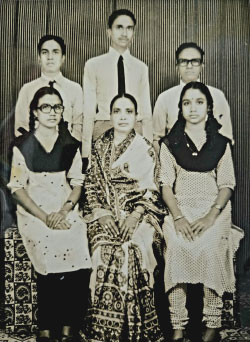
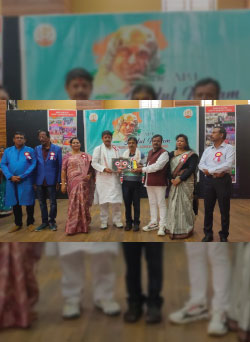
Dr. Sagar’s academic pursuits began at one of India’s most prestigious institutions, National Institute of Technology (NIT), Rourkela—a renowned engineering college that would become the starting point of his career as an electrical engineer.
In the early days at NIT Rourkela, Dr. Sagar was thrust into a challenging academic environment, surrounded by bright and ambitious peers. The rigor of the Electrical Engineering program at NIT was demanding, pushingstudents to develop a strong grasp of both theoretical and practical knowledge. For Dr. Sagar, this was the perfect stage to explore the intricacies of electrical systems, from the basics of circuits to more advanced concepts like powersystems, digital electronics, and signal processing.
While Dr. Sagar had already established himself as a competent electrical engineer, he recognized that technical skills alone would not be sufficient for his long-term career goals. To truly excel in the modern business landscape, he needed a broader skill set that encompassed both engineering and management. Thus, Dr. Sagar made the pivotal decision to pursue an MBA in Human Resource Management at the Manipal Academy of Higher Education.
This decision marked a significant shift in his academic trajectory. The MBA program, with its emphasis on leadership, strategy, and organizational behaviour, exposed Dr. Sagar to the complexities of business management, human resources, and organizational dynamics. It was here that he developed a deeper understanding of the interconnectedness between technology and people, recognizing that technological advancements alone would not be enough without a capable, motivated team to drive them.
Having gained a solid foundation in both technical and managerial domains, Dr. Sagar was determined to further enhance his leadership capabilities. Recognizing the importance of continuous learning in leadership, he enrolled in the Executive Management Programme at the Indian Institute of Management (IIM), Calcutta, one of India’s top business schools.
His time at IIM Calcutta gave him the tools to think strategically at the corporate level, positioning him to take on more senior management roles and lead organizations with greater vision and agility.
"The function of leadership is to produce more leaders, not more followers." – Ralph Nader
Phase 4 : A Distinguished Career at SAIL

Dr. Sagar Mohanty’s professional journey is a testament to his vision, hard work, and ability to lead teams in some of the most challenging and technical environments. His distinguished career of over 32 years in Steel & Power Plant Operations and Maintenance at the Rourkela Steel Plant (RSP), one of the largest and most significant plants in India, became a defining chapter in his life. His upward trajectory in the Steel Authority of India Limited (SAIL) reflected not only his technical prowess but also his exceptional leadership and commitment to innovation. He even received advanced training in operation & maintenance from Tata Electric Companies, NTPC, ECIL. He also received advanced training from abroad and visited Poland, Germany, Netherlands, and Italy in this connection. Before joining SAIL as a Management Trainee(Technical), he had a brief stint as assistant engineer in Orissa State Electricity Board.
Schooling at REC Campus School, Rourkela – The Foundation of Discipline and Leadership
Dr. Sagar’s career at SAIL began with his appointment to the Rourkela Steel Plant (RSP), where he quickly became a valuable asset to the organization. At RSP, he was initially involved in the day-to-day functioning of the power plants and steel manufacturing units, where his primary responsibilities revolved around ensuring smooth operations. The plant’s intricate network of electrical systems, turbines, and mechanical processes required a keen understanding of both technical troubleshooting and preventive maintenance. Sagar’s ability to keep the plant running efficiently, even in the face of technical difficulties, became one of his hallmarks.
Rising to the Role of General Manager In-Charge
As his career progressed, Dr. Sagar’s skills and contributions were recognized, leading him to the role of General Manager In Charge of the Central Power Training Institute (CPTI) at RSP.
Under his leadership, the Central Power Training Institute evolved into a centre of excellence for training, offering courses in electrical systems, automation, and power management. Dr. Sagar was instrumental in revamping the curriculum, introducing hands-on learning modules, and fostering a culture of continuous improvement among employees.
Fostering Research and Innovation
In addition to his responsibilities at CPTI, Dr. Sagar also played a pivotal role in the Technology Innovation and Industry Relations (TIIR) department at the National Institute of Technology (NIT), Rourkela. His collaboration with NIT Rourkela was a visionary step in bridging the gap between industry and academia. Under his stewardship State-of-the-art HMI Power Plant training Simulator was commissioned successfully and CPTI was certified as a Category-I Power Training Institute by CEA. Ministry of Power. Government of India. CPTI also received the prestigious Golden Peacock National Quality Award. He is even a Member of All India Management Assocation and also Life Fellow of Society of Power Engineers(India).
"Teaching is the one profession that creates all other professions."
Phase 5 : A Passion for Teaching and Training
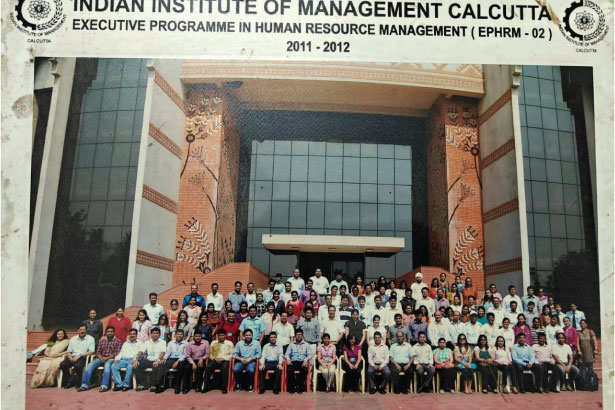
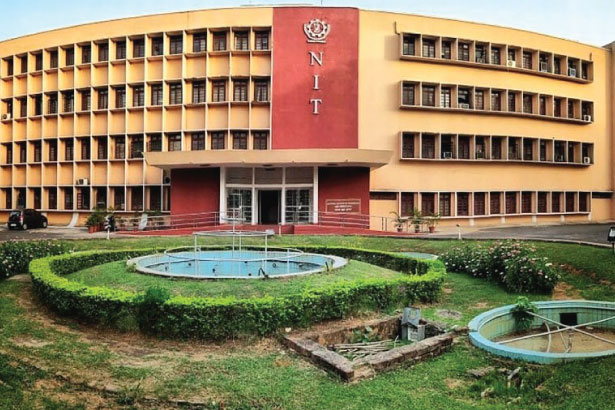
In addition to his responsibilities at CPTI, Dr. Sagar also played a pivotal role in the Technology Innovation and Industry Relations (TIIR) department at the National Institute of Technology (NIT), Rourkela. His collaboration with NIT Rourkela was a visionary step in bridging the gap between industry and academia. Under his stewardship State-of-the-art HMI Power Plant training Simulator was commissioned successfully and CPTI was certified as a Category-I Power Training Institute by CEA. Ministry of Power. Government of India. CPTI also received the prestigious Golden Peacock National Quality Award. He is even a Member of All India Management Assocation and also Life Fellow of Society of Power Engineers(India).
Teaching at the College of Engineering and Technology (CET), Bhubaneswar
Dr. Sagar’s academic career began at the College of Engineering and Technology (CET) in Bhubaneswar, one of the most prestigious engineering colleges in Odisha. As a lecturer, he had the opportunity to impart both theoretical knowledge and practical insights to the next generation of engineers. What set Dr. Sagar apart from other faculty members was his ability to integrate his real-world experience at SAIL into his teaching, ensuring that students not only understood the concepts but also saw their practical applications in the field.
Certified Trainer at the Management Training Institute (MTI), SAIL
Dr. Sagar’s commitment to developing leaders was further exemplified through his tenure as a certified trainer at the Management Training Institute (MTI) at SAIL. MTI is a key institution that provides management training to executives across SAIL, and Dr. Sagar played a pivotal role in developing leadership and managerial training programs aimed at grooming the next generation of corporate leaders. His deep knowledge of both engineering and management made him an ideal fit to bridge the gap between technical expertise and leadership development.
Contributions to Engineering and Management Literature
Dr. Sagar’s influence as an academician extended beyond the classroom. He is a Member of All India Management Association and also Life Fellow of Society of Power Engineers (India). His insights into engineering, management, and training were shared through a number of publications in leading industry journals and academic conferences. He authored several papers on topics ranging from power plant efficiency, energy management, and industrial operations to leadership in corporate settings. He Received Advanced training in abroad in O&M of Power Plant. In this connection he visited Poland, Germany, Italy & Netherlands. Presently he is servings HRD Consultant and Guest Faculty. His work was recognized by both industry leaders and academics, further establishing his credibility as a thought leader in his fields of expertise.
"The reward for work well done is the opportunity to do more." – Jonas Salk
Phase 6 : Recognitions and Awards
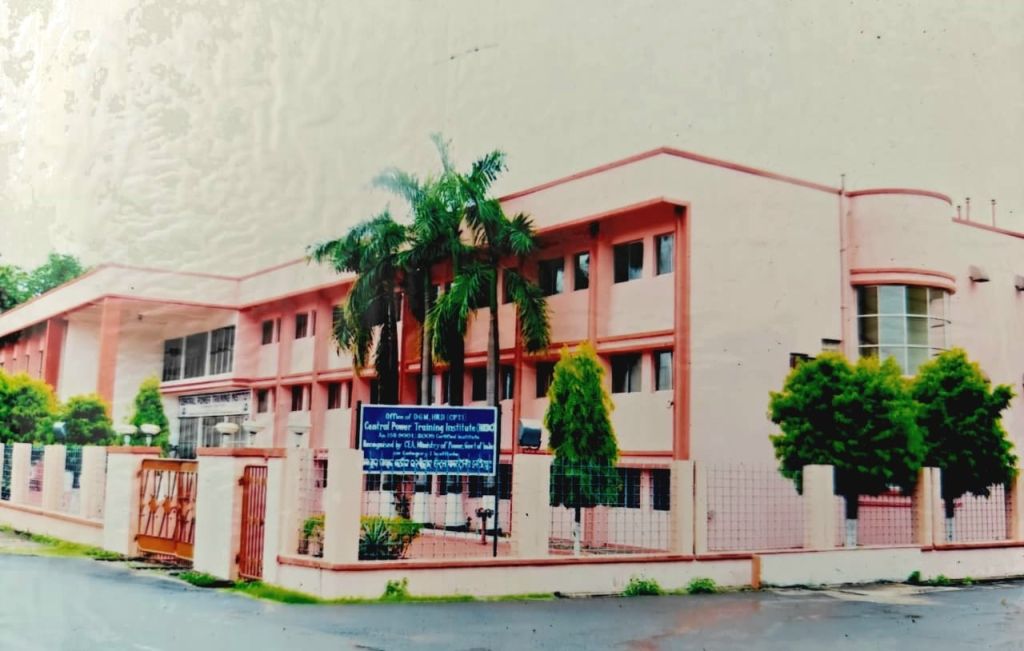
Dr. Sagar Mohanty’s unwavering commitment to excellence in the fields of engineering, management, and education did not go unnoticed. Over the course of his distinguished career, his achievements, leadership, and contributions were recognized by both professional organizations and governmental bodies. These accolades, however, were not just a reflection of his technical prowess or managerial expertise, but also of his dedication to continuous improvement, his mentorship of others, and his belief that success should be used as a platform to accomplish even greater things.
One of the most prestigious recognitions Dr. Mohanty received was the Dr. Abel Wolman Gold Medal Award presented by the Institution of Engineers (India). This award, named after one of the most prominent figures in civil engineering and water management, is given to individuals who have made exceptional contributions to their fields and have demonstrated an outstanding commitment to professional excellence.
Another notable honour was the Orissa Engineering Congress Award, a state-level award recognizing outstanding contributions to engineering and technology in the region of Odisha. This award, presented by the Orissa Engineering Congress, is given to individuals who have made exceptional strides in both the technological advancements and industrial growth of the state. As someone who had made a significant impact in the engineering landscape through his work at SAIL and his contributions to training and educational initiatives, Dr. Mohanty’s receipt of this award underscored his state- wide influence as an engineer and educator.
At the state level, Dr. Mohanty was also honoured with the Madhusudan Memorial Award, a prestigious award presented to individuals who have made significant contributions in the field of engineering, technology, or social service in Odisha. This award was named in memory of Madhusudan Das, one of Odisha's greatest social reformers and educators. Dr. Mohanty’s recognition with this award was a testament to his work in transforming the lives of countless professionals through his training programs, as well as his commitment to industrial growth and human resource development. His efforts to improve operational efficiency at SAIL, particularly in the power sector, were seen as reflective of the progressive values that Madhusudan Das himself espoused.
One of Dr. Mohanty’s most significant professional accomplishments came under his leadership of the Central Power Training Institute (CPTI), which was awarded the Best Power Training Institute Award. Under Dr. Mohanty’s guidance, CPTI became a hub for training and development, producing a new generation of engineers, managers, and technicians who would go on to shape the Indian power sector. Dr. Mohanty played a crucial role in improving the quality of training programs offered at CPTI, ensuring they were both technologically advanced and industry-relevant.
In addition to his engineering and academic awards, Dr. Mohanty was also recognized for his contributions to cultural and social causes. He was honoured with the Jugalbandi Samman by the Shilasree Sahitya Sansad in Bhubaneswar, a prestigious recognition in the world of literature and culture. The award was given to Dr. Mohanty in recognition of his efforts to bridge the gap between technology and societal progress, as well as his role in promoting educational initiatives that transcended traditional boundaries. His work, both in engineering and in teaching, was seen as a way of promoting the values of progress, innovation, and social responsibility, all of which align with the ideals of the Shilasree Sahitya Sansad.
These awards were a clear reflection of his commitment to pushing the boundaries of knowledge and his drive to innovate within his field. Dr. Mohanty’s work in engineering research was a testament to his belief in the importance of knowledge sharing and his desire to contribute to the global dialogue on energy and industrial development.
"Family is not an important thing. It's everything." – Michael J. Fox
Phase 7 : Personal Life and Inspirations
Dr. Sagar Mohanty’s life was not solely defined by his professional achievements; at its core, it was deeply rooted in the values of family, resilience, and personal growth. While he ascended to great heights in the fields of engineering, education, and leadership, his personal life remained his anchor—shaped by the love, support, and sacrifices of his family. His story is not just about success, but about endurance, loss, and the unwavering strength of familial bonds.
Born into a middle-class family in Odisha, Dr. Mohanty grew up with parents who instilled in him the principles of hard work, discipline, and integrity. His father, a man of great wisdom and humility, believed in the power of education and encouraged Dr. Mohanty to pursue excellence in his studies. His mother, a compassionate and resilient woman, taught him the importance of kindness, patience, and perseverance in the face of adversity.
Both of his parents played a crucial role in shaping his character and outlook on life. They emphasized the importance of knowledge, ethical values, and service to society, and these teachings remained with him throughout his career. Dr. Mohanty often credited his parents for his grounded personality and his ability to remain humble despite his accomplishments.
In November 2022, Dr. Mohanty faced the profound loss of his father, a moment that left a deep void in his heart. His father had been his guiding force, a source of wisdom, encouragement, and unconditional support. Losing him was not just a personal loss but also an emotional and psychological challenge.
Barely two years later, in 2024, his mother also passed away. Losing both parents in such a short span was an immense emotional burden. However, true to his resilient spirit, Dr. Mohanty did not allow grief to overshadow his responsibilities. Instead, he drew strength from the values his parents had instilled in him—reminding himself that their legacy lived on through his work and the countless individuals he had mentored over the years.
Dr. Mohanty’s journey of resilience was made easier by the unwavering support of his wife, Prof. Dr. Padmaja Pattnaik, M.Phil from JNU, New Delhi and PhD. from Utkal University who served as Principal of Women’s College .She was not only his life partner but also a source of intellectual companionship and emotional strength. Their relationship was one built on mutual respect, shared values, and a common passion for education.
His wife’s academic background in literature and humanities complemented his technical and managerial expertise, creating a perfect balance in their intellectual pursuits. She was deeply engaged in research and academics, often sharing her insights on literature, philosophy, and human values, which enriched Dr. Mohanty’s perspective beyond the realm of engineering and industrial training.
Their mutual love for education extended beyond their individual careers. Dr. Mohanty and his wife believed that knowledge was the greatest asset a person could have and that education was the most powerful tool for social transformation. They frequently discussed teaching methodologies, leadership models, and ways to improve education systems, both in technical fields and in humanities.
Their home became a place of learning and intellectual discussions, where ideas flowed freely, and growth—both personal and professional—was encouraged. Dr. Mohanty often attributed his success in mentoring young professionals to the insights and support he received from his wife, who helped him see the human and emotional aspects of education, beyond just the technicalities of the subjects he taught.
Despite his demanding career, Dr. Mohanty always made it a point to prioritize his family. He believed that true success is measured not just by professional achievements, but by the relationships we nurture. Even amid his hectic schedule at SAIL, his responsibilities at CPTI, and his numerous academic engagements, he always found time for his family—be it through simple conversations, shared meals, or supporting each other in their individual pursuits.
His approach to life was one of balance and discipline. He believed that a well-rounded life was one where one’s professional aspirations, personal commitments, and emotional well-being coexisted harmoniously. His ability to maintain this balance was a key factor in his enduring success, both at work and at home.
As Dr. Mohanty moved forward in life, he carried with him the legacy of his parents, the support of his wife, and the values of education, perseverance, and resilience. He saw every challenge as an opportunity to grow, every setback as a lesson to learn, and every success as a chance to give back.
His personal journey was as inspiring as his professional one—a story of love, loss, resilience, and the unbreakable bond of family. Despite the personal tragedies he endured, he never wavered in his dedication to his mission. Instead, he found strength in his memories, motivation in his family, and purpose in his work.